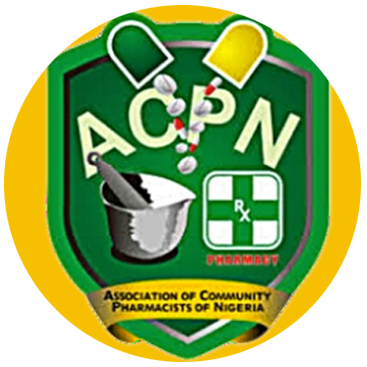Members of the Association of Community Pharmacists of Nigeria (ACPN) have appealed to the National Assembly (NASS) to amend some provisions of the existing laws to tackle the menace of fake drugs and unwholesome food substances in the country.
In a letter to the Senate President Godswill Akpabio, the national chairman, Ambrose Eze, raised the alarm over the renewed influx of fake drugs, counterfeit products, and unwholesome foods and drinks into Nigeria.
He said ‘’over 50 percent of drugs in circulation are fake and substandard as against the official figures of between 13 percent and 15 percent.’’
In the letter titled: “Renewed Influx of Fake and Counterfeit Drugs and Unwholesome Foods and Drinks in Nigeria’’, the association said although ‘’the dilemma of fake drugs and unwholesome foods has always been with us in Nigeria’’ the ugly trend has surged significantly in the last five years.
“The influx of fake drugs, foods, and especially drinks in Nigeria has become a major source of worry in contemporary times. Our usually reliable and dependable research-based efforts indicate that we are back to the days of over 50 percent of drugs in circulation being fake and substandard as against the official figures hovering between 13 percent and 15 percent.’’
ACPN traced the prevalence of fake drugs and unwholesome food products in Nigeria to over three decades ago, adding that promulgation of laws over time to check the development had helped very little in curbing the menace.
Eze said, “As far back as 1988, the Federal Ministry of Health (FMoH), in collaboration with the World Health Organisation (WHO), carried out studies on the prevailing drug distribution system in Nigeria. The WHO studies revealed that 33 percent of drugs in circulation in Nigeria were fake, and seven percent of this quantity was fatal on consumption.
“This led to the promulgation of Nigeria’s first decree on fake, counterfeit, and unwholesome food substances (Decree 21 of 1988), which was subsequently amended by Decree 17 of 1989.
“Ten years later, in 1998, a review exercise by the Faculty of Pharmacy of the University of Lagos (UNILAG) revealed more startling realities. At this time, 49.6 percent of fake drugs were traceable to Open Drug Markets (ODM), and 32.8 percent were directed to the doorstep of Patent Medicine Vendors. 12.8 percent of the fake drug incidence led to fatalities, while 10.8 percent ended in therapeutic failure,’’ he said.
ACPN expressed concern at the alarming rate counterfeit medications and unwholesome food items floored Nigeria market despite efforts by regulatory agencies.
It recalled that the late Dora Akunyili era gave some respite as it appeared there was a significant drop in fake drug incidence between 2001 and 2009 when she held sway at the National Agency for Food and Drug Administration (NAFDAC).
Eze, who gave some credit to NAFDAC for its efforts in recent years, regretted that the “unwholesome food and drinks had surged significantly in the last five years because the Federal Task Force and the equivalent State Task Forces have almost become moribund with negligible regulatory output.’’
According to him, although the Fake Drug Act was passed into law in 1999, it had barely been in existence. ‘’At the closing stages of the 1999 transition, the Fake Drug Act was entrenched in the statutes but this has not been substantially activated in recent times,’’ he said.
He highlighted the achievement through the collaborative efforts of NAFDAC and the Pharmacy Council of Nigeria (PCN) as noteworthy in efforts to eradicate the menace in the country.
‘’One of the most positive outputs in the new order at NAFDAC was the landmark collaboration with the PCN in January 2024 to seal the Sabon Gari drug market immediately after the first Coordinated Wholesale Centres (CWC) in Nigeria was officially launched in Kano, Kano State.
‘’For the records, the CWC are the well-regulated drug centres which are designed to replace the Open Drug Markets (ODMs) by virtue of the National Drug Distribution Guidelines (NDDG) released ten years ago in 2015.
The association called for urgent collaborative efforts to “save Nigerians from the almost five million unregistered drug-selling outfits that dot both the rural and urban centres in Nigeria.’’ The ACPN urged NASS to as a matter of national urgency amend the existing Fake Drug and Unwholesome Food Act to give bite to the law.
